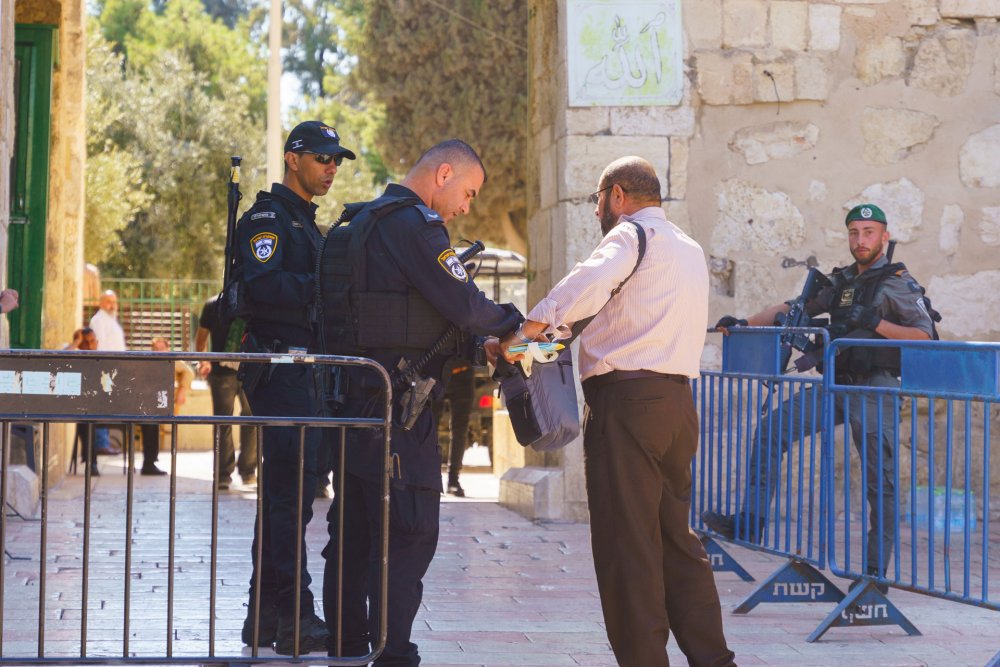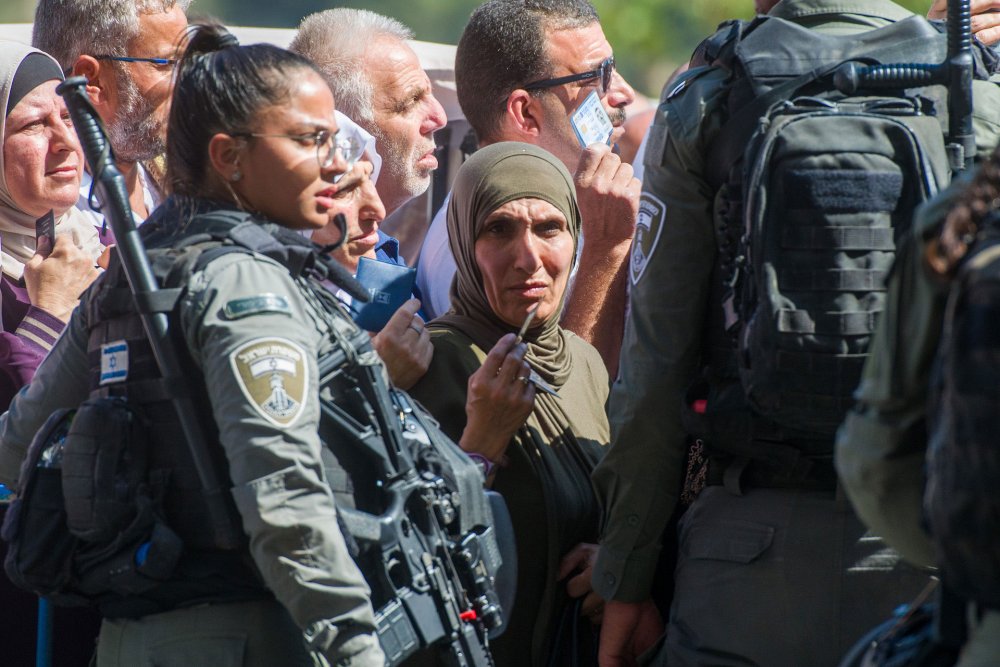The stories of the Jerusalem workers reflect the dire economic situation in general and for Palestinian workers in particular these days. Ziad Hammouri, director of the Jerusalem Center for Economic and Social Studies, spoke with Jerusalem Story about the deteriorating economic situation for Palestinian workers in Jerusalem since Israel’s latest assault on the Gaza Strip, which began October 7, 2023. He concluded, “If the situation continues as it is now in Jerusalem, the unemployment rate will rise significantly among Jerusalemites.”1
According to Israeli official statistics, the unemployment rate in 2022 for Palestinians in Jerusalem within Israeli municipal borders (which does not include all the towns and villages located behind the Separation Wall) is 8 percent.2 Palestinian sources claim the unemployment rate is nearly double that—14 percent.3 Part of the difference lies in the scope of coverage: The PA statistics include the entire governorate of Jerusalem, which is much larger than the Israeli municipal city boundaries.
For workers aged 15 to 24, most of whom work in Israeli service professions, the rate is as high as 25 percent.4 Presently, most of the male workforce is staying at home due to the war situation and the closure of commercial and tourist businesses, according to Hammouri.
Israeli closures and restrictions on movements in Jerusalem’s Arab neighborhoods are also felt in official Israeli institutions, such as the municipality and the Israeli Ministry of Education, Hammouri says: “The atmosphere of escalating incitement prevailing in Jerusalem, the incitement issued by senior Israeli officials such as Minister of National Security Itamar Ben Gvir—all have contributed greatly to increasing tension and fear among the Arabs in the Holy City.”
Palestinian Jerusalemite lawyer Azzam Hashlamoun shares that he also faces difficulties as he tries to move between the neighborhoods of Jerusalem. He is often confronted with quickly erected Israeli checkpoints (“flying checkpoints”) manned by security personnel who restrict and disturb the regular movement of Palestinian Jerusalemites trying to go about their business.
For Palestinian Jerusalemites who need to travel outside the city, the problems are compounded; the fear of not being able to return if one leaves the city of Jerusalem largely determines whether to take such a risky adventure. This is due to the closure of the checkpoints, even to those holding Israeli permanent-resident IDs, who by law are supposed to be allowed freedom of movement in and out of the city. Movement between areas beyond the wall and the rest of the city is also restricted by the address listed on one’s personal government-issued identification card.
Hashlamoun tells Jerusalem Story, “These barriers are cutting off the Arab neighborhoods, in addition to stopping commercial activity in the city, which has become almost completely paralyzed, as merchants and goods cannot reach their shops and businesses, while the restrictions of movement by means of the barriers prevent residents from arriving and shopping.”5
This isolation policy has produced a reduction in the number of Jerusalemites being able to carry out their normal life chores. With approximately 200,000 Jerusalemites living behind the wall, half of Jerusalem’s Palestinian population has had no access to the rest of their own city since October 7.
For Ziad Hammouri, Azzam Hashlamoun, and Saeed Musa, Jerusalem these days is not the city they know. It is a city living in constant fear and anxiety about the unknown, which has forced Jerusalemites to change their daily routines and to be more careful in everything they do and say, especially in their social media.



